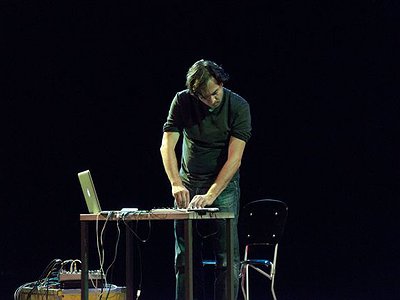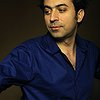The role of the composer has always been subject to change. What's your view on the (e.g. political/social/creative) tasks of composers today and how do you try to meet these goals in your work?
It's not easy to talk about the role of composers in general because this covers such a huge spectrum, and I don't think any artist has to necessarily conform to political or social positions in their work. From a personal point of view, I am aware of the political aspects of what I do and I find myself responding at times to what's going on beyond artistic necessities, but it's never at the root of what I'm trying to make. What I mean is that the desire to compose and communicate new conceptions of music is my primary ambition and sometimes this involves using social or political material as a mirror or to shed other light on how we relate to ideas or each other.
Certainly the way society views the arts has changed in the last years, because of the recent economic upheavals and there has inevitably been a readjustment in how artists can operate in this economy.
How, do you feel, could contemporary compositions reach the attention of a wider audience?
I do think this is necessary to explore but I've absolutely no idea how.
Music-sharing sites and -blogs as well as a flood of releases in general are presenting both listeners and artists with challenging questions. What's your view on the value of music today? In what way does the abundance of music change our perception of it?
I think there is a positive aspect to this - the fact that it's all out there and one can source and listen to a musician's work in a few clicks - leads to greater awareness of what artists are doing - and a broader sharing of ideas. Less isolation leads to the possibility of interesting hybrids of music and subcultures influencing the mainstream.
In terms of consuming music - I find that I have different modes of listening - when I'm online - or listening to CD's at home - or at a concert. Online listening inevitably comes with a shorter attention span - and it has the quality of taking stock of something that we could allow ourselves to open up to in another moment. I like the fact that we are faced with our own impatience and I think many people skip through soundcloud files to get impressions rather than a total experience. As long as we know the limitations of this and can create situations where we can listen to the particular music that excites us, whether live or in another more concentrated way, or even as a soundtrack to the activities of our lives, then it's OK.
Composers have traditionally found it hard to secure a living with their art. What are the financial realities you're living with and in which way, do you feel, could they be improved?
I feel very lucky for my own situation, because I've always managed to make a living from my work as a composer and musician. This involves of course not sticking your nose up at some of the kinds of music work that comes your way. I know that there are purists out there who would much rather have a day job and then just write music on the side, without any compromises or artistic pressures from institutions or the market. I respect this - but I suppose I belong to the other camp. Earlier in my career I would much rather get paid work composing, arranging and performing as a way of supporting myself and then through this experience try and develop my own projects and swerve commissions to my own agenda and concerns.
Usually, it is considered that it is the job of the composer to win over an audience. But listening is also an active, rather than just a passive process. How do you see the role of the listener in the musical communication process?
The role of the listener is something that I have been thinking about for a long time, because it's the primary position from which I would analyse any music. I have never viewed composition as what is written on the score alone, or even the relationship between score and performers. So the way in which audience perceives the music and the subjectivity that entails is the main starting point.
In my view there is no right way - both active listening and passive listening can be relevant in the same music, an audience can have the freedom to zoom in or out of the piece, and it's something that I try to be aware of when writing music. Namely, that there is enough detail there for the active listener but also ensuring that I create a musical space with a strong enough identity that a passive listener can just be fleetingly aware of and can move in and around at their own pace.
Please recommend two artists to our readers which you feel deserve their attention.
Two artists that I have a strong affinity with and who both make great sound art/composition/multi-media work are Marco Ciciliani, and Arturas Bumšteinas. We released a wonderful work by Marco on unsounds about 10 years ago: Tullius Rooms , and he continues to make challenging and interesting work. I have got to know Arturas Bumšteinas' work only recently and we are releasing a wonderful piece of his on the label shortly called: Epiloghi: 6 was of Saying Zangtumbtumb, a radio/sound work which is playful, inventive, moving.



